- Home
- Winston Groom
Better Times Than These Page 4
Better Times Than These Read online
Page 4
“You mean you have to do their laundry for them?” Kahn asked casually.
“Oh, for crissakes, Billy; there’s a big laundry room down there somewhere and a couple of swabbies to help out; but Brigade’s gotta staff the whole thing. Patch’s put me in charge.”
In mock despair Kahn began to bang his head on his forearm on the porthole opening. “I guess somebody heard all your bellyaching about keeping clean after all.”
“Can you imagine having to be in there with all that stinking stuff? And Patch’ll be chewin’ my butt every time somebody complains they didn’t get their skivvies back.”
“Poor bastard,” Kahn said patronizingly. “Did you get a look at what I’m in for?” he asked, and dreaded the answer.
“Nah, I didn’t see the list, but Kennemer’ll find you sooner or later.”
“It’s relentless, ain’t it, Sharkey?”
“It sucks,” Sharkey said.
On deck, a stiff, cold breeze, accelerated by the course of the ship against it, whipped out of the west as the transport rounded the bight and cut into the whitecapped chop of San Francisco Bay, heading directly for the Golden Gate Bridge and the ocean beyond. On the port side, where Kahn and Sharkey had found a place at the rail, the city of San Francisco gleamed in pastels like the City of Oz pasted against the blue afternoon sky.
“I’d of liked to have had time to get out to the fault,” Kahn said, flipping a cigarette butt over the side.
“What in hell are you talking about now, Billy?” Sharkey said.
“The San Francisco quake, fool—nineteen oh six. Tore this place apart—started a fire that burned it flat. Where you been, man?”
“Jesus, Kahn, you mean you got fuck-else to worry about than something happened sixty years ago? You better worry about your ass and what’s gonna happen to it for the next year, that’s what you better start worrying about,” Sharkey said.
He glared skeptically at the delicate, aquiline features of the company Exec, thinking that he didn’t really look much like an Infantry officer; that his lean, freckled frame would probably have been better off in the Finance Corps or Quartermaster, bent over a desk figuring on paper, instead of being second in command of a hundred fifty riflemen headed into jungle combat. It was a sheer stroke of luck that Kahn had been born a year earlier than he, and consequently graduated a year earlier, and therefore outranked him, even though he had gone to the Academy and Kahn was a product of ROTC. It wasn’t that Sharkey minded it; it was just that he thought they ought to leave the fighting up to professionals and let the others push paper.
“Nah, seriously, a whole new theory of earthquakes came out of the San Andreas thing,” Kahn said, “ ‘Elastic rebound.’ The outcroppings are exposed right there.”
“Christ, Kahn, you shoulda been in the damned Engineers with all that geology stuff—they coulda got more outta you than they did at Benning.”
“I wish to hell I had been in Engineers,” Kahn said. “I was almost in the Finance Corps.”
The bridge was passing overhead, and for a moment his mind wandered back to the ancient geology amphitheater and musty labs at Florida State University and the countless hours he’d spent trying to comprehend the forces that created and maintain this planet, and it came to him suddenly and with wry satisfaction that this expedition was simply another clot of man-made stupidity that would scarcely be remembered in the far-distant future of the world. If people then thought about it at all—assuming there would be people and assuming also that they would be thinking—they would see it merely as a tiny spot in backtime, far removed from themselves and whatever they were presently doing. And as far as Billy Kahn’s part was concerned, they more than likely would not remember that at all—in the far-distant future of the world.
“Uh-oh,” said Sharkey, peering down the line of men leaning against the rail. From this angle, Sharkey’s nose reminded Kahn of a banana.
Captain Kennemer, Four/Seven’s Adjutant, a clipboard in hand, was approaching, searching the faces for the ones he sought. He spotted Kahn and Sharkey before they could turn around.
“Ah, Kahn, my man, I’ve been looking for you,” Kennemer said in the insipid gung-ho way he said everything these days. Kahn had noticed the change in Kennemer ever since Brigade had gotten its marching orders. Before, he had merely been a pain in the ass. Now he was a royal pain in the ass.
He loves this, Kahn thought, looking down at Kennemer’s spit-shined combat boots. Damned war lover—out for an oak leaf so he can retire and sit on his can somewhere and draw six hundred a month for the rest of his life.
In the meantime, Kennemer was a royal pain in the ass.
“Got a job for you, Kahn,” Kennemer said.
“Sorry—the doctor advised me to spend my time playing shuffleboard. I’m up in First Class, you know.”
“Don’t be a wiseass, Kahn. We’re all going to have to pull extra duty because the Old Man’s in charge of troops till we get across, did you know that? You know General Butterworth and Headquarters Company went ahead—they’re all flying over so they can set things up for us when we get there. The Old Man is senior colonel aboard and he wants Four/Seven’s officers to help him out. I’ve already told Sharkey here what he’s got to do.”
“I know. He’s going to be the navigator,” Kahn said unenthusiastically. Kennemer ignored the comment.
“Well, let’s see—yeah, Kahn . . . Kahn . . . he’s got you down for”—a toothy grin spread across Kennemer’s pudgy face—“ ‘rumors control.’ ”
“Say for what?” Kahn asked, squinting at Kennemer.
“Rumors Control Officer. Gotta have somebody to check out the rumors—you know about that—like we did it back at Bragg. Division thinks it keeps the EMs happier if they have somewhere to go to ask somebody official about the rumors—there’s more rumors going around here than flies in a shithouse. Hell, I heard we been diverted to the South of France just an hour ago,” Kennemer said, winking at Sharkey. “You might check that one out first.”
“But what in hell do I do—how do I find out the truth myself? Nobody tells me anything.”
“That’s your problem, Kahn. Just sit tight—there’ll be an officers’ call in an hour; you can find out all about it then,” Kennemer said, bouncing off to find another unsuspecting victim.
“I don’t believe it. I don’t believe it,” said Kahn. Sharkey was near hysterics, pounding at the rail with his fist. “This isn’t happening,” Kahn said. “He’s gotta be some kind of nut.”
“Heard any good rumors lately?” Sharkey said, breaking again into fits of laughter.
“Shit on rumors—I don’t stop ’em, I start ’em,” Kahn declared sourly. He lit another cigarette and leaned back on the rail, watching the great city of San Francisco disappear forever around a bend as the ship pounded into the blue waters of the Pacific.
“I sure wish I could have taken a look at that fault,” he said dejectedly.
“There’s a rumor the war’s been postponed for inclement weather—mind checking it out?” Sharkey said, breaking up one more time.
6
In less than an hour, the transport was out of the choppy bay, swaying softly on the Pacific swells, bringing on the first wave of seasickness. Many affected by it went below to their bunks, and those who had to wait their turn at the bunks went inside to the enlisted men’s lounges or the ship’s library, believing this would abate the queasiness. Naturally, it made it worse. Soon nearly twenty percent of the men were ill, and a long line had formed outside sick bay, where corpsmen were dispensing Dramamine tablets.
At the height of it all, the voice of Captain Kennemer blared over the ship’s loudspeaker, beginning, “Now hear this,” and then ticking off the order in which chow would be served. This was received with a flood of horrible profanity from those who were ill, and prompted a further announcement by Kennemer, after a short wait while he sought advice from the Navy officers who had been standing by. Conspicuously missing from this se
cond announcement was the “Now hear this,” which Kennemer dropped after noticing titters from the Navy men.
“Ah—ah—it has come to our attention that some people are feeling the effects of seasickness. These people should get the seasick pills from the dispensary immediately and they should refrain from eating chow. The Navy advises us that seasickness is common for the first few hours on the ship but that it will go away in a short period of time.
“The Navy also advises us that anyone who is feeling sick should go out on the deck and not stay below. The Navy also requests that anyone having to throw up please do so in the garbage pails provided on the decks and in the living quarters and they ask that no one throw up over the rail so as not to get the sides of the ship dirty. Thank you.”
“That sonofabitch,” said Pfc. Madman Muntz, who had been casting about for a quarter of an hour for a good place to heave.
“So that’s what the brown shit is on the side of this tub,” he said, addressing an enormous black soldier squatting against the superstructure and obviously trying hard not to think of water or ships or anything associated with them.
“What’s wrong with you, Carruthers? You don’t like the ocean?” Muntz said mockingly.
Carruthers only looked up and around weakly.
“Ah, it’ll go away; everybody gets it first time out,” said Muntz, profoundly grateful that he was at least in good enough shape to sound authoritative about it.
By then some of those who were not sick were starting to sit down in the mess hall, a huge damp room with long rows of tables end to end. Filipino mess stewards, dressed in white jackets, served the men their food, balancing trays with half a dozen plastic plates on them as though they had been born to walk like marionettes across the swaying floor. To Army men, unaccustomed to being served seated, it seemed a rare treat that they were being catered to this way—almost like a football team before the game, steak and baked potatoes, an offering to the brave. It never occurred to them that the Navy simply didn’t trust soldiers walking around with trays full of food on rolling ships at sea. Furthermore, while none of them had actually anticipated steak and baked potatoes, neither were they expecting the kind of meal they received, and their momentary gratitude quickly changed to anger and then despair as the plates were set down.
“Lookit this shit—what the hell is it?” DiGeorgio said, springing back from a heap of gray goo with orange bits of carrots suspended near its surface.
“Who the hell knows what it is?” said Spudhead Miter, poking at the substance with a spoon.
“It’s swill,” Crump said sadly.
The men picked through the chow as best they could. The only thing most of them could eat was the lukewarm canned pear that had been plopped into a section of their divided plates. It was a disappointing glimpse into their prospects for the next several weeks.
Most of them had never been on an ocean voyage before, and the truth was, they found it a little bit exciting—although they would never have admitted this to one another.
Kahn, who had not been affected by the seasickness, had just finished a reasonably civilized meal in the officers’ mess. The same Filipino stewards had laid out generous helpings of roast beef, mashed potatoes and gravy, green peas and tossed salad, served on white china—or at least, white crockery—plates on large round tables with white tablecloths. There was ice cream for dessert and iced tea to drink, or milk if you requested it.
Captain Thurlo, Bravo Company’s Commander, had taken to his bunk at the first signs of the seasickness, and when Kahn looked in on him earlier, Thurlo was in such a state that he did not make sense. The little that could be gotten out of him was that he wanted Kahn, as Executive Officer, to run things until he got better, so Kahn had called a meeting of platoon leaders and told Sergeant Trunk to have the sergeants there too, at nineteen hundred hours in his cabin, to make sure things were going smoothly.
In the meantime, he decided to take a look around the ship, and staggered off in the sway like a drunken man, hoping that as time went by he would develop a better pair of sea legs. The bow was dipping and rising into a golden Pacific sunset, magnificently illuminated by a bank of low-hanging gray clouds just above the horizon. It made Kahn wish plaintively that he had joined the Navy.
The coastline had long since disappeared from sight, and the swells had a grayish hue from the angle of the sun. Kahn was wondering, looking at them, just what he would find if he could explore the bottom of the ocean they were passing over right now. He figured the ship must be somewhere near the edge of the continental shelf, which could account for these big rollers they were experiencing—millions of tons of water traveling thousands of miles to pile up against a six-hundred-foot undersea slope.
Beyond this, the ocean floor dropped down more than a mile, to the hazy world of the abyssal zone, which he had always called abysmal, although actually it was not abysmal, because it had a bottom of sorts, but then beyond this the ocean sometimes dropped off again, to terrific deeps which, if they were not literally abysmal, were at least the closest thing on earth to it, and were certainly dismal, down seven or eight miles beneath the surface, where no ray of sunshine could ever penetrate—a place so hostile to life that nothing except the most bizarre and primitive organisms could ever exist there.
Watching the huge swells, Kahn mused over what effects the ship might have down in those deeps as it passed over them, if such effects could be recorded. It was an interesting proposition, but given the depth and density of the water and its meager propensity for carrying sound and shock waves, he concluded that the waves would spread out progressively from their source and be totally absorbed before they ever reached the bottom of the deeps. This phenomenon he jokingly named the “Dismal Deeps Effect,” and he decided to tuck it away in his memory in case his geology career ever led him into oceanography, which was unlikely—but even if it didn’t, it was still an interesting postulation, given his newfound conviction that even with the most sophisticated seismic devices known to man, the passing of the transport over such a chasm would probably have no effect whatsoever.
7
In the bow of the ship, Major Richard Arlo Dunn, Signal Corps, was fiddling with his transoceanic radio, trying to locate a certain California station he knew was carrying the Dodgers baseball game. Once he thought he had it, faintly, but then some earthly interference injected itself, and he continued vainly to twist the dial and turn the radio on top of the big ventilator where he had set it down.
This was Dunn’s third crossing. The first, in nineteen forty-three, had taken him to New Georgia, in the Solomon Islands, where he received a field commission from buck sergeant to second lieutenant. The second, in nineteen fifty-one, took him to Korea as a captain in the Signal Corps.
This would be his final tour.
He had not succeeded in making the promotion list three consecutive times and was due to be separated within the year. But it really did not matter to Dunn; his life had already fallen apart years earlier, at Mannheim. He wondered now, softly, as he turned the dials, what life would have been like had he gone to work in his father’s little radio shop, or to college—where he might have won a football scholarship . . . But then the war had come, and afterward, with the commission, the Army had seemed like a good career . . . and then he had gotten married—but something had gone wrong with that too . . .
He gave up on the radio and squinted out toward the fiery sun, which was precisely tangent to the horizon, almost as if it had been brought down in the lens of a sextant. The ocean waves marched by like giant tombstones—at least, that was the way he saw them—and the tombstones reminded him of that day three weeks ago in his little house at Fort Bragg and his German wife, Maria. It had been the Fourth of July, and he had been drinking gin since noon.
Maria made the first one for him, a gin and tonic, but after that he was on his own. He had given up adding a twist of lime after the second, and by the third, the ratio of gin to tonic grew to two to one
, and when he finally ran out of tonic he settled for what he called his “very dry martini.”
“Is there anything from the mail?” Maria asked, standing in the bedroom doorway in her slip.
“I haven’t opened it yet,” he said, picking up the half-dozen letters from an end table.
The heat was unbearable. That was why he drank, he decided. Even in their little air-conditioned house on post, the heat closed in on Dunn in a fierce, evil way, driving him first to thirst, then to drink, and then to more drink until the heat and the thirst and the drink finally blended into a warm, soggy mush in his mind. The heat and the drinking—it had been that way for weeks, but the heat really didn’t matter until he came home because there were so many other things he hated about his work.
“Please don’t drink any more, darling. You know we have to be at the club. Why don’t you start dressing?” she said.
“I’d rather open the mail.”
She came up behind him and rubbed the back of his head. “Richard, please, we must not be late. Why don’t you take a nice shower now?”
“I don’t feel like it right now. I’ll take one . . . in a minute. I want to read the mail.”
“I must finish getting dressed,” she said, drawing her hand tenderly across his shoulder as she pulled away. He looked through the Venetian blinds across Ste.-Mère-Église Drive to the field of low scrub brush shimmering in the North Carolina heat. Fourth of July, he thought—the last Fourth of July they would spend together in this house. The Army would permit her to live here while he was gone, but when he returned, if he returned, they would have to move, and he would be “Mister” Dunn, not Major Dunn, or even Captain Dunn. Not even Sergeant Dunn or Private Dunn. Mister Dunn. He wondered if she would understand.
She was so young, and she’d married him in better times, when he was an up-and-coming officer; when it had all been ahead of him. He should have been a colonel by now—maybe a full colonel—but then there had been Mannheim and the board of inquiry . . . Oh, what the hell, he thought. He picked up the stack of mail and began sorting it.

 El Paso
El Paso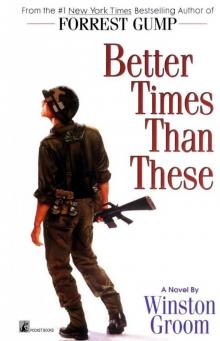 Better Times Than These
Better Times Than These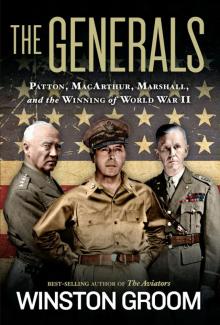 The Generals
The Generals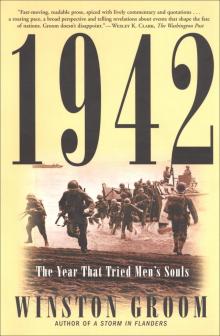 1942: The Year That Tried Men's Souls
1942: The Year That Tried Men's Souls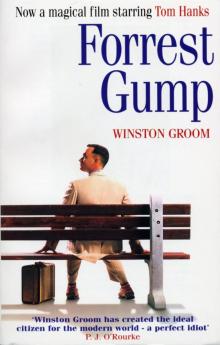 Forrest Gump
Forrest Gump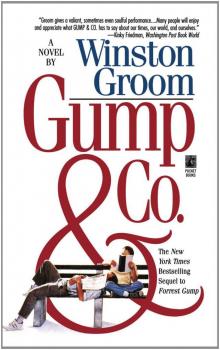 Gump and Co.
Gump and Co.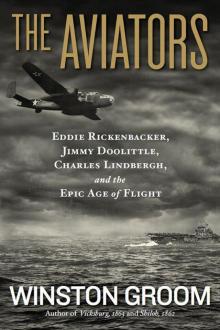 The Aviators
The Aviators Shrouds of Glory
Shrouds of Glory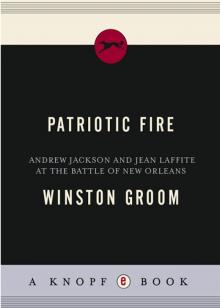 Patriotic Fire
Patriotic Fire Kearny's March
Kearny's March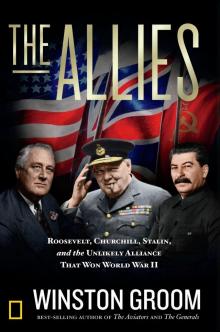 The Allies
The Allies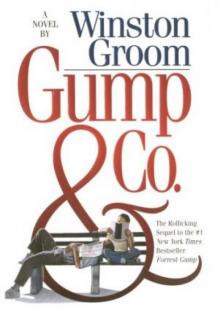 Gump & Company fg-2
Gump & Company fg-2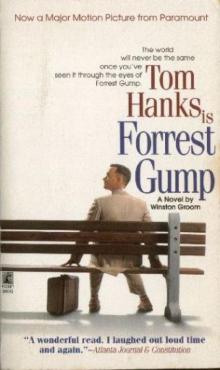 Forrest Gump fg-1
Forrest Gump fg-1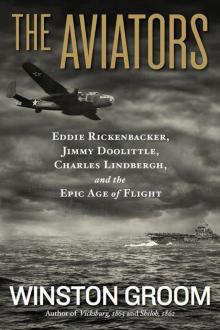 The Aviators: Eddie Rickenbacker, Jimmy Doolittle, Charles Lindbergh, and the Epic Age of Flight
The Aviators: Eddie Rickenbacker, Jimmy Doolittle, Charles Lindbergh, and the Epic Age of Flight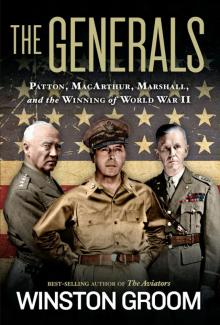 The Generals: Patton, MacArthur, Marshall, and the Winning of World War II
The Generals: Patton, MacArthur, Marshall, and the Winning of World War II